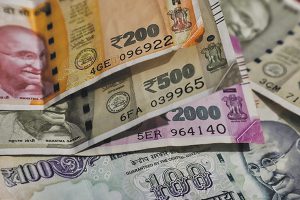Bloomberg
India’s Supreme Court upheld Prime Minister Narendra Modi’s 2016 decision to overnight invalidate high-value currency notes, a decision that could provide firepower to the ruling party ahead of a series of elections in coming months.
A five-judge panel in a majority verdict said the government’s move satisfied the test of “proportionality†and the court cannot supplant the wisdom of the executive on the matter.
Justice BV Nagarathna offered faint dissent in calling the decision to withdraw 500 ($6) and 1,000 rupee notes an “exercise of power contrary to the law†— albeit “well-intentioned†— that should have been discussed in parliament and conducted through legislation.
Demonetisation, pitched by Modi as a fight against corruption, hurt businesses and livelihoods across the country and had become a political flash-point between the opposition and ruling party.
The verdict could help Modi build momentum for several state elections this year and a national vote in 2024.
The shock move to ban 86% of India’s cash caused much hardship, with limited benefits. It didn’t weed out black money or cash gained through illegal means. However, there’s been an increase in digital payments, a drop in fake notes, and an improvement in tax collections.
Former Finance Minister P Chidambaram tweeted that the court’s majority decision “steered clear of the question whether the objectives were achieved.â€
Almost five dozen petitions had challenged the demonetisation move. The government argued that it was a “well-considered†decision and part of a strategy to combat menace of black money, terror financing and tax evasion.
 The Gulf Time Newspaper One of the finest business newspapers in the UAE brought to you by our professional writers and editors.
The Gulf Time Newspaper One of the finest business newspapers in the UAE brought to you by our professional writers and editors.
